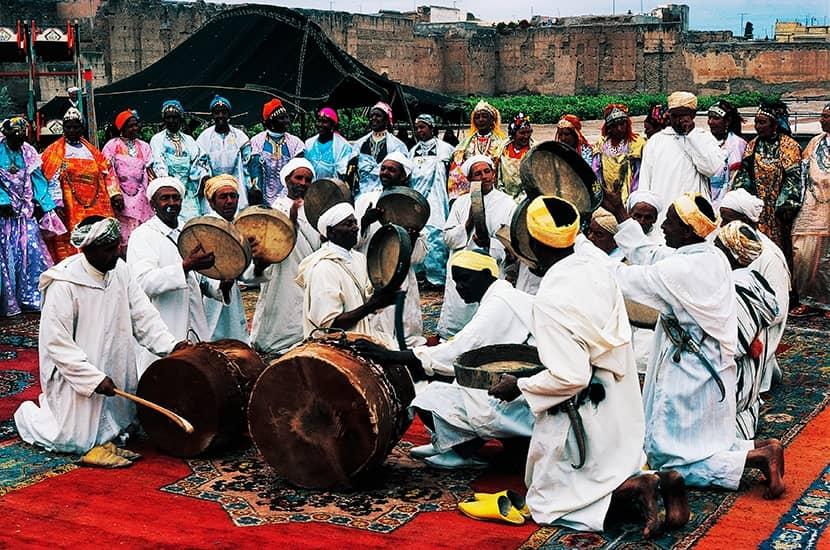As a writer who obsesses over the right title to grab a target audience, seeing a book subtitled ‘Song Collectors and the Life and Death of Folk Tradition’ I say, count me in. It’s a challenging subject, not often trodden with aplomb. I wasn’t even dissuaded when the first line on the inner jacket — ‘This is the first ever book about song collectors…’ — caused me to wonder what those multiple volumes cluttering up my groaning shelves were.
Michael Church could have started with Mary Beth Hamilton’s admirable study of blues collectors, In Search of the Blues (2007), an excellent template. Instead, the five-book checklists at the end of all 27 chapters of Musics Lost and Found contain few of the books I would have expected to see, given that enticing subtitle and the (mostly 20th-century) collectors Church has cherry-picked to exemplify what is a somewhat tendentious thesis: ‘We may be seeing folk music’s “end of history”.’
Where have I heard that idea before? Perhaps in multiple folksong collections over the past 250 years, such as Reliques of Ancient English Poetry and The Last Leaves of Traditional Airs. So, not an original proposition. Nor is it one that chimes with the facts, even if it’s been the constant concern of singers down the centuries, borne out by the most famous put-down of a song collector ever uttered: James Hogg’s mother, Margaret, to Walter Scott, after he presented her with his Minstrelsy of the Scottish Border:
‘Ye hae spoilt them a’thegither. They were made for singing and no’ for reading, but ye hae broken the charm, and they’ll never be sung mair.’
That was two centuries ago. And yet here we are, full to the brim with familiar ‘keepers of the traditional flame’, such as Béla Bartók and Alan Lomax, scooping up the last jewels of oral tradition. Or so they thought. Yet, as Church attests, such individuals can still be found trawling for songs from Morocco to Afghanistan and Korea to Armenia. But not, apparently, in the British Isles, where Church confines himself to collectors long dead, such as John Clare, Sabine Baring-Gould, Cecil Sharp and Percy Grainger. Peter Kennedy and Mike Yates can go hang.
Clare sticks out like a sore thumb. He may be a major poet but his song collecting was minimal, and what he did collect he bastardized, as Church would have discovered if he’d scanned George Deacon’s John Clare & the Folk Tradition — not the most cryptic title. These glaring holes in his research crop up repeatedly, such is his haste to cover the waterfront. The first chapter attempts to get from England’s broadside printers to the Child ballads — a span of three centuries — in eight pages. I can only guess how the many scholars for whom this is a lifetime’s work feel.
Folk tradition has been as boundless and as enduring as the oceans, finding its way into nooks and crannies of song that even Moe Asch’s fabled Folkways label — which receives half a chapter here — could not have marketed. The digital world has made available more folk music than ever — just not for a profit, something Church bemoans. Yet ’twas ever thus, as Church’s Wikipedia-like history of Asch’s hand-to-mouth label confirms.
Folk has always existed on the margins, sometimes dangerously so. I might have hoped for a chapter on the oral tradition springing up in Hong Kong, protesting against Chinese hegemony, from anonymous people who risk prison and worse. Hardly a new situation either. No sirree. The author of ‘Bonnie Earl of Murray’ (c. 1590) — a song still alive and kicking — risked the same. Sadly, Church is too much of a classicist and not enough of a folklorist to have a handle on such tantalizing tentacles of tradition.
Instead, he trawls sources such as Dave Harker’s 1985 Fakesong, long discredited and out of print (the two might be connected), to score points off ‘the ineffable’ Percy Grainger and Cecil Sharp (whom he calls ‘contentious’ in the chapter devoted to him). Good studies on both have dismantled Harker’s neo-Marxist dialectic.
The one recent study Church definitely has read is Steve Roud’s 2017 volume, Folk Song in England. Unfortunately, he has taken Roud at his word on every debatable point in what is more a polemic than a work of academic rigor. He also seems to consider Roud’s bibliography has done all his own background work for Britain, which perhaps explains his disdain for Scottish song (dismissed in two pages), which won’t sit well with Celtic partisans.
Throughout, Church seems to imagine there is some pure, unfettered folk tradition, immune to external influences, preserved down the centuries intact. In this, at least, he’s in good company. It was Hubert Parry who wrote: ‘There is an enemy at the doors of folk music, which is driving it out, namely the common popular song.’ Parry wrote those words a century ago, 17 years before composing the melody for the distinctly popular ‘Jerusalem’, thus making this co-founder of the Folk Song Society the enemy within.
Yet folk song has enjoyed not one but two revivals since then, part of an ongoing cosmology of song, not something separated by bushes and briars. As long as folk song continues to be a broad church, I’ll remain unconvinced that Church is the man to muse upon such schisms. After all, as that modern philosopher Dirty Harry once said: ‘A man’s gotta know his limitations.’
This article was originally published in The Spectator’s UK magazine. Subscribe to the World edition here.

























